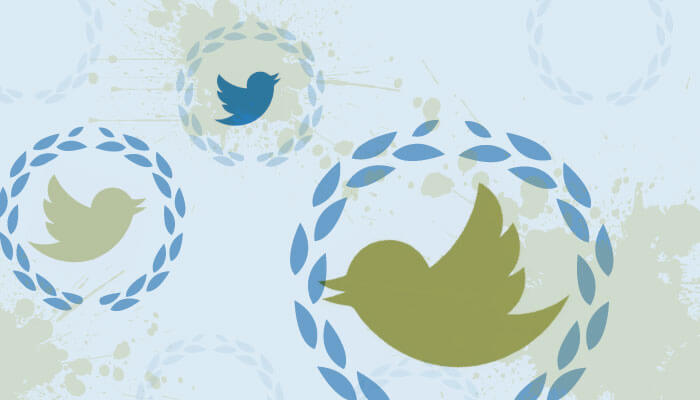
When the 2019 Power List nominations started coming in, we quickly realized that one person was set to win the popular vote. Dr Glaucomflecken, an anonymous Twitter personality, received a few hundred votes across a few different categories. Here are just some of the justifications people gave in support of his nomination:
“I have learnt more about ophthalmology in the past year of following this doctor on Twitter than I can recall from medical school.”
“He makes eye balls funny.”
“If other specialists shared their practical knowledge the way Dr Glaucomflecken does on Twitter, the medical community and the public at large would be better off.”
“He is unique in his use of humor and wit used to engage people, but continues to increase awareness to ocular health, safe practice, and overall partnerships with other medical professionals with the common goal of excellent patient care.”
For various reasons, the judges decided not to feature him among the Power List front-runners, but we decided to get in touch to ask him some questions.
Why did you decide to set up the Twitter account?
I started the Glaucomflecken account at ARVO in 2016. That meeting can be a bit dry, so around the third or fourth CRISPR talk I listened to, I started tweeting as Dr Glaucomflecken. I had no followers at the time, so the only people who were seeing my tweets were people at the conference who were monitoring the ARVO Twitter hashtag, so around eight people. I think the first tweet somebody liked was about a fight breaking out because a drusen researcher called another drusen researcher a pseudo-drusen researcher. As you can see, the account was very ophthalmology-specific at first. I chose to be anonymous because, as a resident, I wanted to have the freedom to tweet my unfiltered thoughts without risk of backlash from my department. It’s funny thinking about it now because I had no followers, so how much trouble could I get into by tweeting CRISPR Kreme jokes to nobody? As I have gained more of a following, the anonymity has been the best decision I’ve ever made. I can tweet ideas (and words) that come from the heart. I have been able to be open about my triumphs, failures, frustrations, and anxieties as a resident, then later as an attending.
What are your goals?
My goals have changed over time. Initially, I just wanted to make people laugh. There is so much intensity and gravity in medicine. I wanted to provide an outlet, both for myself and for others. As I began to gain a following, I added in more educational material. I still tell plenty of jokes, but now I also try to educate others about common ophthalmology issues in a way that’s funny and entertaining. In general, ophthalmology education for non-ophthalmologists in medicine is severely lacking. I think it’s important for ophthalmologists to engage more with other medical professionals. It is so easy to get caught up in our own little world, but there are tens of thousands of primary care and emergency medicine professionals outside of ophthalmology who are confronted by patients with eye issues on a regular basis. In the face of a meager and largely absent ophthalmology medical school curriculum, I think we have a duty to help educate others about basic ophthalmology. By adding in humor to topics like contact lens hygiene, conjunctivitis, or over-the-counter eye drops, people are more likely to listen and retain information. One of the things I’m most proud of is that I’ve probably convinced thousands of people to never buy Visine again.
My latest goal has been philanthropic in nature. I am a cancer survivor, and have made this a focal point behind a lot of the content I create. I have detailed my experience as a young adult with cancer on my website drgcomedy.com. About a year ago I started making infographics in support of a non-profit organization called First Descents, a group that provides outdoor adventures for young adults affected by cancer. This is an endeavor I hope to grow in the future.
How did you come up with the idea for Dr. Glaucomflecken?
I wanted to use the funniest word in ophthalmology, which is difficult because most of our words are ridiculous. In the end, it came down to Glaucomflecken or Pseudophacodonesis. Dr. Pseudophacodonesis was too long and sounded absurd, so I went with the much less absurd sounding, Dr. Glaucomflecken.
Would you be happy to reveal your identity?
If you try hard enough, it’s actually not that hard to figure out. On Twitter, I make a concerted effort to maintain anonymity, but when I speak at conferences, I don’t try to hide my true identity. Besides, wearing a mask on stage really limits your voice projection, and makes it difficult to breathe. I do have colleagues send me my own tweets sometimes, saying: “You’ve got to read this, it’s hilarious!”
What is the best and worst part of ophthalmology for you?
Best part: Everything but diplopia
Worst part: Diplopia
How much of what you tweet is true?
Some tweets very clearly are fake, like a dialog between me and Benjamin Franklin. Any anecdote from clinic, surgery or my life at home is completely true. Well, except for a tweet where I told a belligerent patient who knocked over a sunglasses case that he was making a spectacle of himself. That didn’t happen. So maybe my tweets are 90 percent true.
